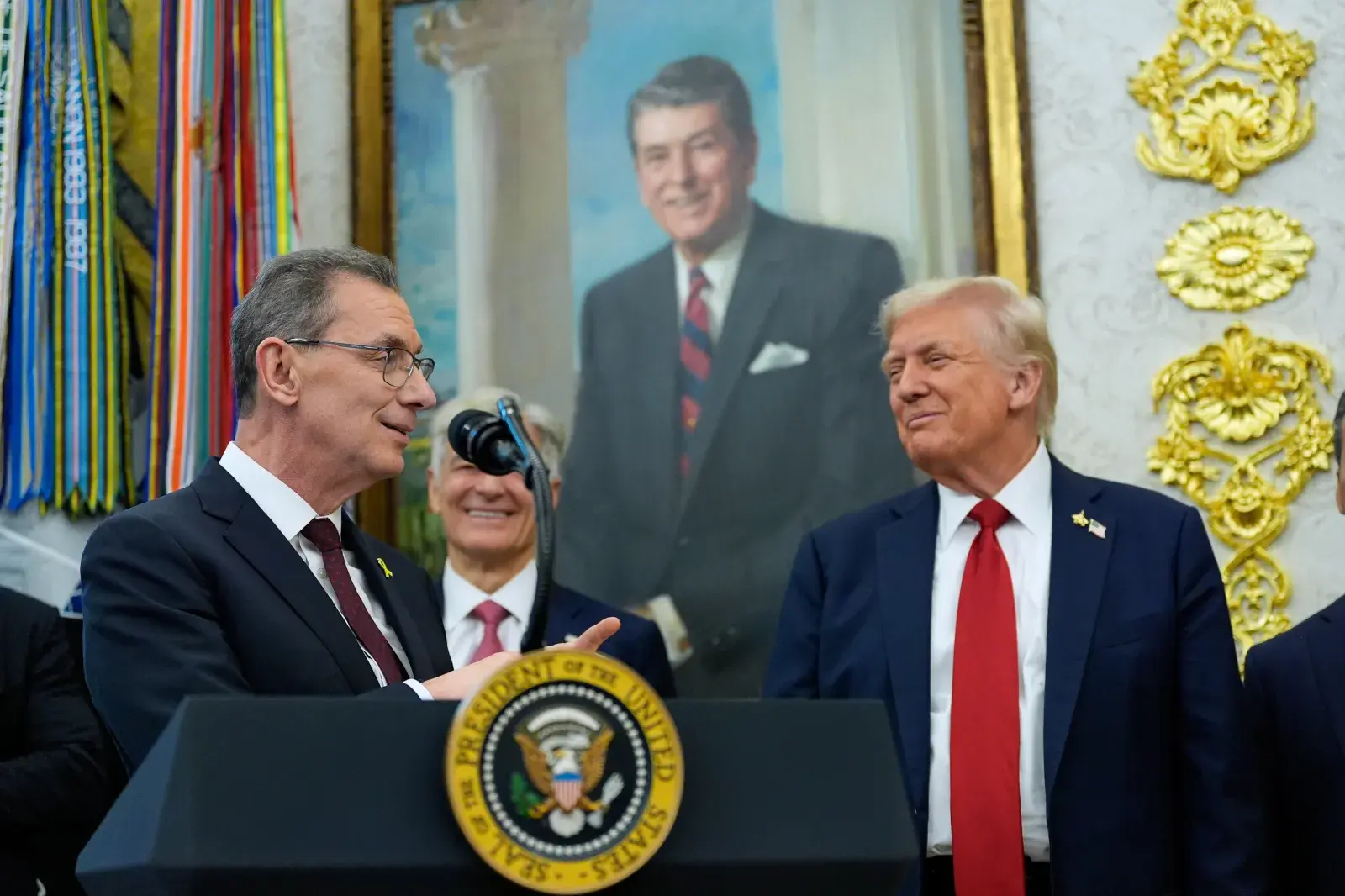By Jasmine Laws
Copyright newsweek

President Donald Trump announced a deal with the major pharmaceutical company, Pfizer, on Tuesday to bring down the costs of its products in line with the lowest price paid by other developed nations.
However, experts that spoke to Newsweek warned that the deal could be more beneficial for Pfizer than it is for Americans.
Rena Conti, a professor in the Department of Markets Public Policy and Law at the Questrom School of Business, Boston University, told Newsweek: “Pfizer is the winner in this deal.”
When approached for comment, Pfizer directed Newsweek to its CEO Albert Bourla’s remarks during the announcement that “the big winner of this deal, clearly, will be the American people.”
Pfizer also told Newsweek the announcement “removed uncertainty and creates pricing stability and predictability, which allows Pfizer to focus on what we do best: delivering breakthrough medicines to patients.”
Meanwhile, a White House official told Newsweek that the “reality is that Pfizer has agreed to lower drug prices for millions of everyday Americans and spend billions onshoring manufacturing to the U.S., paving the way for other pharmaceutical giants to come to the negotiating table with similar offers.”
Why It Matters
Drug prices are exceptionally high in the U.S., and research has shown that America pays more than three times as much as for brand-name pharmaceutical products as other wealthy countries.
The deal comes after Trump sent letters to 17 different pharmaceutical companies in July to bring down their drug prices, as part of a bigger objective to bring down pharmaceutical costs in the country.
The administration celebrated the arrangement as a way of bringing “tangible cost savings to American patients and the healthcare system as a whole,” and in the wake of the deal, Pfizer shares rose more than 4 percent.
The White House spokesperson told Newsweek that Pfizer’s stock “rallying” after the deal “reflects market confidence in Pfizer and the Administration’s ability to get other wealthy nations to pay their fair share for drugs.”
However, some experts are not quite as optimistic about the agreement.
Albert Bourla, chairman and chief executive officer of the pharmaceutical company Pfizer, speaks in the Oval Office of the White House, September 30, 2025, in Washington, as President Donald Trump, right, and Mehmet Oz, Administrator for the Centers for Medicare and Medicaid Services, rear, look on. (Alex Brandon/AP)
How Will This Affect Americans?
The agreement will provide every state Medicaid program in the country access to Pfizer products priced in line with most-favored-nation (MFN) costs, meaning the lowest cost paid by other developed nations.
Pharmaceutical companies are already expected to provide Medicaid services with substantial discounts on drugs, but Pfizer has said that select brands will see reductions as high as 85 percent and its drugs on average will go down by 50 percent, according to a press statement.
People who pay cash for medicines will gain the most of this deal, David Ridley, a professor of business, economics, and public policy told Newsweek, adding this was “because they’ve been paying list prices.”
However, Medicaid recipients typically face small or no cost-sharing already, Peter Neumann, director of the Center for the Evaluation of Value and Risk in Health at Tufts Medical Center, told Newsweek.
He added that some Americans, such as those who are uninsured, may benefit from the lower prices of drugs bought directly from manufacturers, though he said “this segment will likely be small – and out of pocket costs may still be pretty steep for some drugs.” He said that questions still remain about “how much it will affect out of pocket costs.”
Conti said that “the cost differences announced will not be noticed by most Americans at the pharmacy counter.”
She said the drugs that were impacted “treat small patient populations and most patients using these products are well insured now,” meaning price reductions may not directly impact out of pocket costs for patients taking these drugs.
Pfizer is also required under the agreement to produce new drugs that are the same price in the U.S. as in other high-income countries, and according to a recent press statement, said that it would be participating in Trump’s website TrumpRx.gov, to give American patients access to its medicines at “a significant discount.”
The website, which is set to launch in 2026, is a government initiative to enable patients to buy drugs directly from manufacturers, at a discounted rate.
However, Conti said that, while some of Pfizer’s drugs may have 80 percent price decreases, the drugs would still “be unaffordable for many paying cash.”
She said that, for example, Xeljanz, a d…



